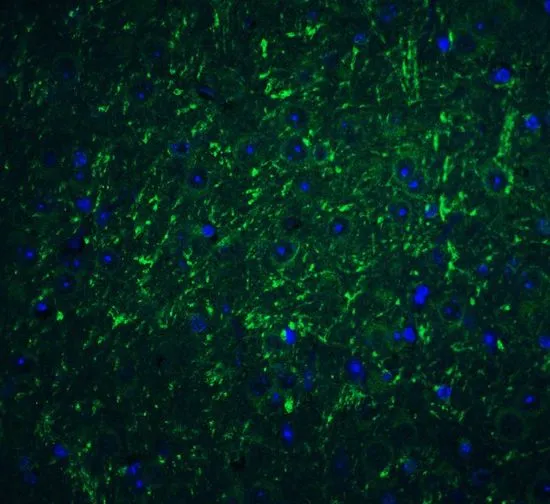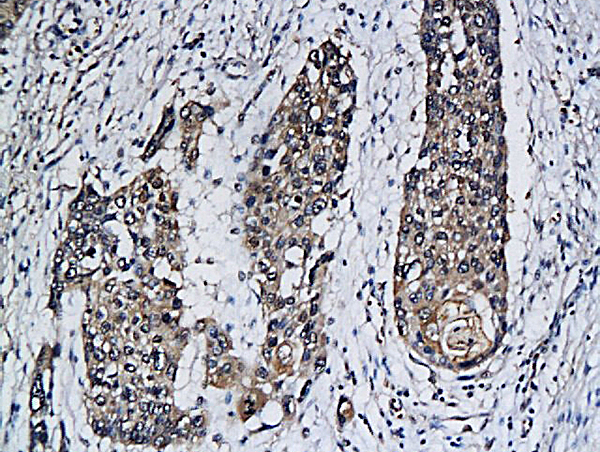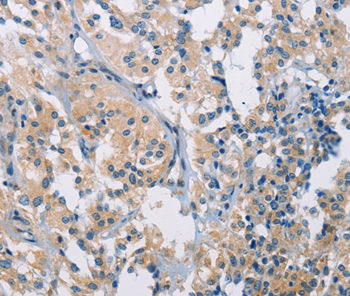PD-L2 Antibody / Programmed death ligand 2 / CD273
ORB607156
ReactivityHuman
Product group Antibodies
TargetPDCD1LG2
Overview
- SupplierBiorbyt
- Product NamePD-L2 Antibody / Programmed death ligand 2 / CD273
- Delivery Days Customer16
- Application Supplier NoteOptimal dilution of the PD-L2 antibody should be determined by the researcher.
- Applications SupplierELISA (order BSA/sodium azide-free format for coating),Flow cytometry: 1-2ug/million cells,Immunofluorescence: 1-2ug/ml,Western blot: 1-2ug/ml ELISA, FACS, IF, WB
- CertificationResearch Use Only
- ClonalityMonoclonal
- Clone IDPDL2/2676
- ConjugateUnconjugated
- Gene ID80380
- Target namePDCD1LG2
- Target descriptionprogrammed cell death 1 ligand 2
- Target synonymsB7DC, Btdc, CD273, PD-L2, PDCD1L2, PDL2, bA574F11.2, programmed cell death 1 ligand 2, B7 dendritic cell molecule, B7-DC, PD-1-ligand 2, PDCD1 ligand 2, butyrophilin B7-DC, programmed death ligand 2
- HostMouse
- IsotypeIgG1
- Protein IDQ9BQ51
- Protein NameProgrammed cell death 1 ligand 2
- Scientific DescriptionRecognizes a protein identified as PD-L2 (same as PDCD1LG2). Engagement of CD28 by B7-1 (CD80) or B7-2 (CD86) in the presence of antigen promotes T cell proliferation, cytokine production, differentiation of effector T cells and the induction of Bcl-x, a promoter of T cell survival. Conversely, engagement of CTLA4 by B7-1 or B7-2 may inhibit proliferation and IL-2 production. PD-L2 does not bind CD28, cytotoxic T lymphocyte A4 or ICOS (inducible co-stimulator). The constitutive expression of PD-L1 and PD-L2 on parenchymal cells of heart, lung and kidney suggests that the Pdcd-1-Pdcd-L system could provide unique negative signaling to help prevent autoimmune disease.
- ReactivityHuman
- Storage Instruction-20°C,2°C to 8°C
- UNSPSC12352203








